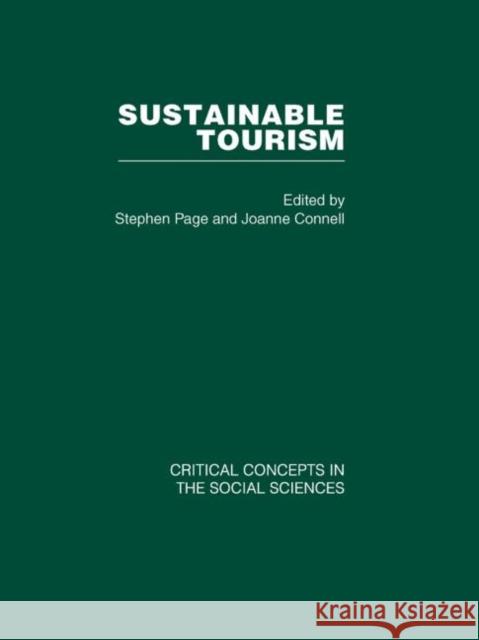Sustainable Tourism » książka
Sustainable Tourism
ISBN-13: 9780415437141 / Angielski / Twarda / 2008 / 2064 str.
Edited by two leading scholars in the field, this new title in the Routledge Major Works series, Critical Concepts in the Social Sciences, is a four-volume collection of canonical and cutting-edge research in sustainable tourism.
Edited by two leading scholars in the field, this new title in the Routledge Major Works series, Critical Concepts in the Social Sciences, is a four-volume collection of canonical and cutting-edge research in sustainable tourism.
The origins of sustainable tourism as a topic of serious academic interest are comparatively recent. The subject is largely a postwar development which began to unfold in the 1960s, initially in the USA and Europe. With the continuing growth in concern about the grave impacts of tourism on the environment, society, and cultures, the subject area has continued to evolve internationally from a number of other disciplines and cognate areas—most notably environmental studies and geography, economics, and sociology, but also planning and management—and there has been a corresponding growth in sustainable-tourism scholarship. Sustainable tourism is now a vibrant and dynamic field of study and research, and the sheer scale of the growth in its output makes this collection especially timely. A wide range of social-science journals have published material about sustainable tourism and this new Routledge Major Work makes available foundational pieces of scholarship—as well as cutting-edge research—from these disparate, and sometimes less accessible sources, as well as from the leading UK, European, and North American tourism journals, and from other publications, some of which are no longer in print.
As well as bringing together the key studies and journal articles that have shaped serious thought about sustainable tourism, the collection will be welcomed as the first mapping of an area that to date has lacked an interdisciplinary synthesis. The thematic organization of the collection, together with the editors’ introductions and their commentaries on the collected texts, help to make sense of the wide range of approaches, theories, and concepts that have informed sustainable tourism, and review the history of the subject and the rise of its identity and research agenda. Sustainable Tourism is an essential collection, destined to be valued as a vital research resource by all scholars and students of the subject.











